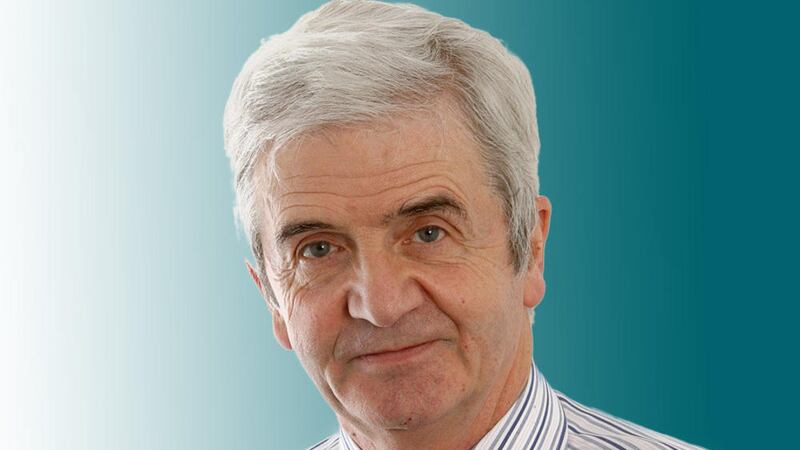Austerity. That's the winner of Election 2015. As David Cameron settles into Downing Street for another five years, we are faced with the harsh economic reality of the Stormont House Agreement, another significant reduction in welfare provision and a forlorn hope that the private sector will somehow rescue our failing public services.
It was a victory based on the triumph of unionism here and nationalism in Britain. Tom Elliott's surprising victory in Fermanagh/South Tyrone justified the UUP's joining the unionist pact and the DUP won East Belfast on the well known electoral principle that those who wave the most flags tend to win the most votes.
Fifteen of the other 16 seats were filled on the basis of sectarian safety by voting for the Catholic or Protestant candidate most likely to win. The exception was in South Antrim, where the popular Danny Kinahan won a seat from the DUP, indicating that the UUP is gaining ground in the battle within unionism.
Despite a creditable performance in retaining its three seats, the SDLP did not make similar progress against Sinn Féin, which had a flat electoral performance. The loss of Michelle Gildernew's seat was a major setback. She is an excellent candidate and by far one of their most marketable electoral assets.
Her removal from the Assembly may explain why her percentage share of the poll fell since 2010, although this downward trend was repeated in 14 of the 18 constituencies. Only Máirtín Ó Muilleoir in South Belfast made a significant gain.
Hemmed in by its two-nations approach, Sinn Féin appears to have reached its electoral limits. It may be time for a strategic re-think, as indicated by Gerry Adams's last minute appeal to unionist voters.
The results here reflected what passed for an election campaign. We had a leaders' debate with only one leader and no debate - just the usual sectarian slanging match.
There were valid accusations that unionist electoral pacts were sectarian in intent, but not to be outdone, Sinn Féin carried out a Catholic head count in North Belfast. (On that basis, the party will presumably not need a manifesto for next year's Assembly elections. It will just go around knocking doors and saying the Rosary.)
The new Conservative administration will be delighted that instead of an election here, we had a political jihad (holy war). Only the 7,000 votes for People Before Profit in West Belfast offered any hope for political sanity.
While most attention in Britain focused on the success of Scottish nationalism, the English nationalist, David Cameron, won the day. English nationalism (a bit like unionism here) tends to be defined by what it is not, rather than what it is.
This was reflected by Cameron's twin strategy of threatening to leave the European Union and fuelling fears of an "unprecedented" 55 Scottish nationalists at Westminster.
His little Englander approach also queried the legitimacy of a possible Labour-led coalition (coalitions are only for foreigners) or worse, a minority government.
Labour's limited historical insight prevented them from pointing out that Irish Home Rule parties held 89 seats in 1892 and that Liberal minority governments from 1905 to 1915 introduced progressive legislation, which laid the foundations of the welfare state.
British historical ignorance won the election for Cameron. Irish historical obsession cost us the chance to oppose him.
Within that political framework, he exploited the economic fear of what Napoleon called a nation of shopkeepers, by advocating additional budgetary restraint rather than economic investment.
Miliband did not have the basic political and communication skills to expose Cameron's big lie. The post-Blair Labour Party has become unelectable. It fell between two stools: it was too close to the SNP in English eyes and it was not close enough to them in Scotland to avoid electoral meltdown.
The Labour Party now commands the support of only a third of the British electorate. Margaret Thatcher's vision of an American-style, right wing society has come to pass in a socially divided and divisive Britain.
It will also be somewhat divided along constitutional lines. Conservative austerity will boost Scottish nationalism even further and enhance the possibility of a second independence referendum north of the border.
Unionism's victory may be tempered by the growing emotional fracture along Hadrian's Wall.
Those politicians here hoping for a Labour victory must now face the reality of more austerity. Our extravagant sectarianism will prove an expensive luxury in the years ahead.
You can analyse the votes whatever way you want, but nobody won, apart from the very rich - which makes the victory cheers at the election counts ring very hollow indeed.









